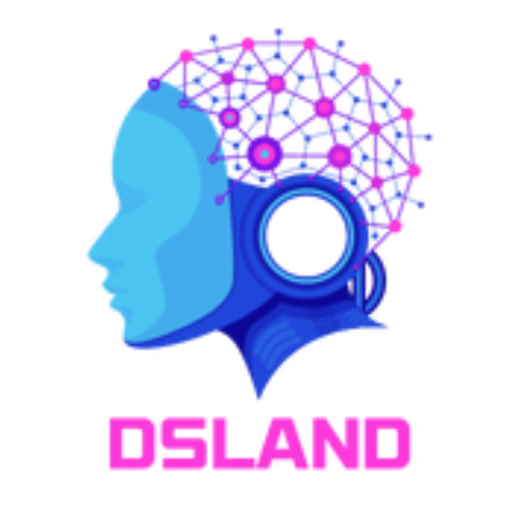AI-Generated Immigrant Parody Song Hits German Top 50 Charts
In an era where artificial intelligence continues to reshape the landscape of creativity and entertainment, an unprecedented milestone has been achieved. An AI-generated immigrant parody song has recently burst onto the music scene, securing a spot in the German Top 50 charts. This achievement not only challenges the traditional boundaries of musical creation but also opens up a Pandora’s box of questions and possibilities.
A Groundbreaking Fusion of Technology and Art
The ascent of this AI-generated song to the top echelons of the German music charts underscores the remarkable fusion of technology and art. This phenomenon heralds a new era where machines, once relegated to mechanical tasks, are now pioneering creative frontiers. The song, characterized by its satirical take on the immigrant experience in Germany, showcases the uncanny ability of modern AI algorithms to craft content that resonates with a broad audience.
The Role of AI in Modern Music Production
The intersection of artificial intelligence and music production is not entirely novel; however, the extent to which AI has been integrated into the creative process has reached new heights. The success of this immigrant parody song is a testament to the sophistication of current AI models. These models not only analyze vast datasets to generate lyrics but also embody a deep understanding of cultural nuances and human emotions.
AI-Powered Lyric Generation
- AI models can analyze thousands of songs to discern patterns in lyrics, themes, and structures.
- The advanced natural language processing capabilities allow AI to generate lyrics that can evoke specific emotions or carry particular messages.
- Machine learning algorithms can adapt to different genres, ensuring that the generated content aligns with the intended musical style.
Music and Melodic Composition
- AI algorithms can compose melodies that resonate with listeners by learning from a vast array of musical compositions.
- These algorithms can combine various musical elements to create original scores that align with the mood and tone of the lyrics.
- The integration of AI in music composition allows for innovative soundscapes and experimental melodies that might not emerge from traditional methods.
The Controversial Nature of AI-Generated Content
While the success of the AI-generated immigrant parody song is a cause for celebration, it also stirs controversy and debate. Critics argue that the humor and cultural commentary of the song may trivialize the immigrant experience. The question arises: Can an artificial entity genuinely capture the complexity of human life, particularly sensitive topics like immigration?
Ethical Considerations
The ethical implications of AI-generated content, especially in sensitive domains, warrant serious examination. Ethical considerations include:
- Authenticity: The authenticity of an AI-generated voice delivering a narrative laden with human struggles and triumphs is debatable. Critics argue that true authenticity can only arise from lived experiences.
- Sensitivity: The portrayal of sensitive topics, such as immigration and cultural assimilation, necessitates a nuanced understanding and empathetic approach. Whether AI can authentically replicate such sensibility remains contentious.
- Ownership and Creativity: The question of who owns the creative output of an AI is multifaceted. Does it belong to the programmers, the algorithm itself, or the public domain?
Public Reception
The public reception of the song has been a mixed bag. While some lauded the ingenuity and catchy nature of the song, others expressed concerns about the trivialization of serious issues. This bifurcated response mirrors the broader societal ambivalence towards AI-generated content.
The Future of AI in the Creative Industries
Despite the controversies, the phenomenal success of the AI-generated immigrant parody song signifies a transformative shift in the creative industries. This shift invites speculation about future trends and possibilities.
Innovations on the Horizon
The integration of AI in creative endeavors is still in its nascent stages. However, the promise of AI-led innovation is immense, encompassing various domains:
- Personalized Content Creation: AI could tailor content to individual preferences, creating a highly personalized entertainment experience.
- Collaborative Creativity: AI could serve as a collaborative tool for artists, providing inspiration and assistance rather than replacing human creativity.
- Automated Production: The automation of various aspects of production could lead to more efficient and cost-effective content creation.
Challenges and Opportunities
As AI continues to penetrate the creative industries, several challenges and opportunities present themselves:
- Quality Control: Ensuring that AI-generated content maintains high quality and artistic integrity is crucial.
- Job Displacement: The rise of AI in creative fields could threaten traditional roles, prompting a reevaluation of human contributions to art and culture.
- Unexplored Genres: AI could venture into unexplored genres and styles, pushing the boundaries of what is considered conventional.
Conclusion
The ascent of an AI-generated immigrant parody song to the German Top 50 charts is a hallmark of the evolving relationship between technology and creativity. While it elicits excitement for the potential of AI in the music industry, it also compels us to address the accompanying ethical and societal concerns. As we stand on the cusp of a new era in creative expression, it is imperative to navigate these waters with mindful consideration, ensuring that the human essence remains at the heart of artistic endeavors.
The future of AI-generated content is rife with possibilities, poised to redefine the contours of creativity. As we continue to blend human ingenuity with artificial intelligence, the harmonious symphony of the future awaits.
